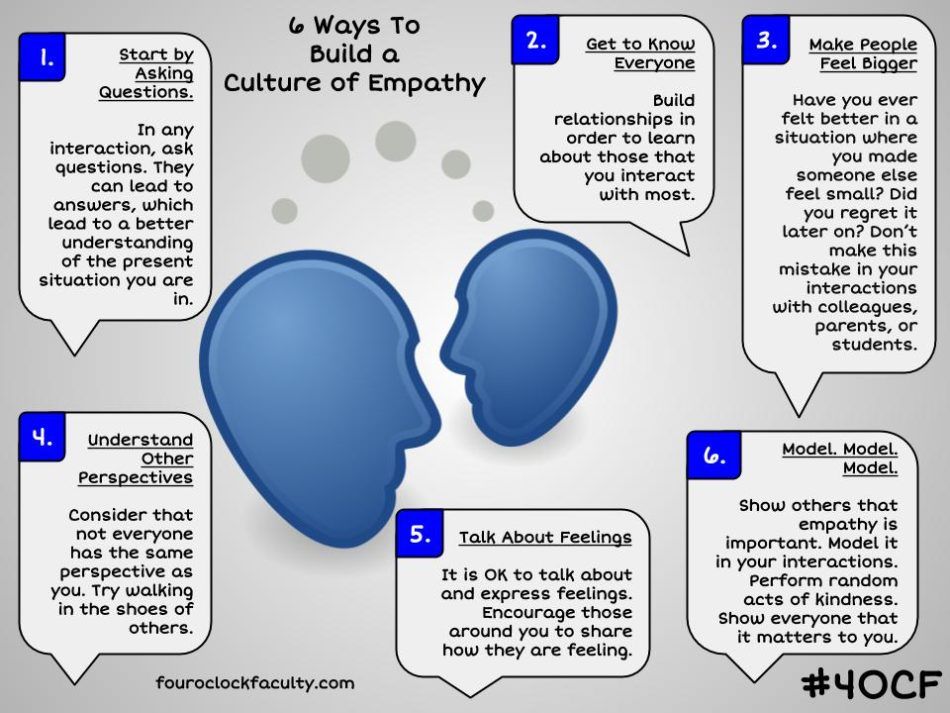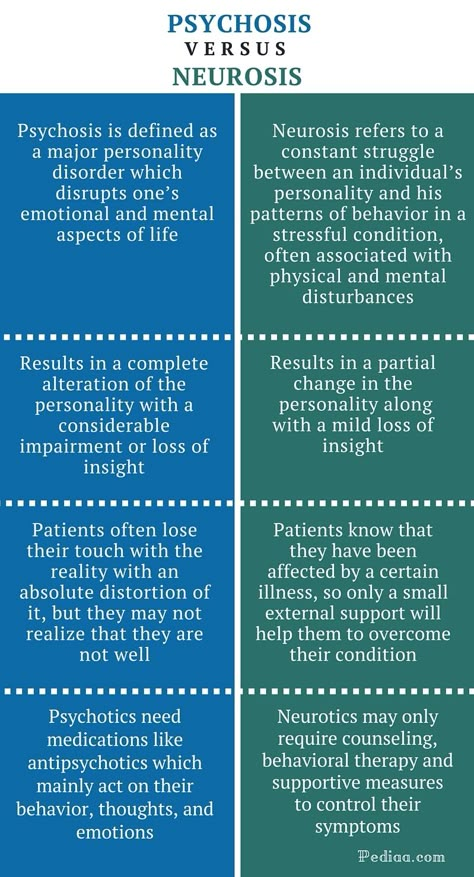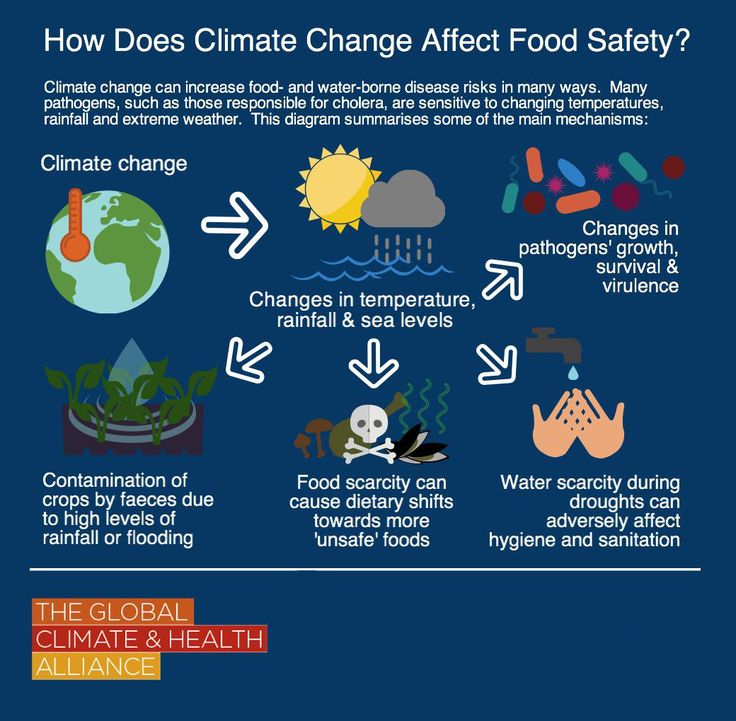Things only bulimics know
23 things you'll only know if you've suffered with bulimia
Let's discuss bulimia – a mental illness which can go undetected as the sufferer doesn’t always lose or gain a significant amount of weight.
Let’s start with the basics. What is bulimia? According to the eating disorders charity Beat: “Bulimia is a serious mental illness where people feel that they have lost control over their eating and evaluate themselves according to their body shape and weight. People with bulimia are caught in a cycle of eating large quantities of food (called ‘bingeing’), and then vomiting, taking laxatives or diuretics (called purging), in order to prevent gaining weight.”
Bulimia is a very difficult thing to understand if you’ve never had the misfortune of falling prey to it, especially when you consider how much of an uncomfortable sensation it is to vomit.
Here are the things you’ll only know if you’ve ever been bulimic, written by someone who suffered with bulimia for around six years.
1. You will spend a lot of money
(Anthony Devlin/PA)
Bingeing cycles tend to be costly as you try to buy as much food as possible, so you can then eat as much as possible to effectively make the binge “worthwhile”. I used to spend my weekly wages solely on food, and had I had to spend money on rent at the time I probably would have dipped into rent money to feed the habit too – that’s how consuming the mental illness is.
2. Your face will swell
Common results of bulimia are swollen eyes and cheeks, caused by pressure as you lean over to make yourself sick.
3. Discoloured teeth
It’s common for a bulimic to develop yellowed teeth, as frequent vomiting can erode your tooth enamel and can also make your teeth sensitive to temperature. Vomiting may also cause your salivary glands to swell and the tissues of your mouth and tongue to become dry, red and sore.
4. You’ll feel a weird sense of pride
Proud GIF – Find & Share on GIPHY
Sometimes, when you’ve had a particularly successful purge – basically you’ve thrown up all the food you’ve consumed during your binge till you can taste the stomach bile – you might feel a weird sense of pride in this.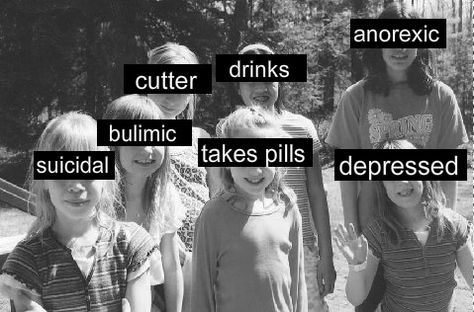 Not all people can make themselves sick, so surely that’s a talent in itself, you might think.
Not all people can make themselves sick, so surely that’s a talent in itself, you might think.
5. Scars on your knuckles and around your mouth
Constant rubbing against the teeth and mouth can cause abrasions and scars over time.
6. You’ll feel like a failure
People with bulimia often don’t lose very much weight despite their efforts. I actually gained about a stone, and for someone whose mental illness was resulting from a desire to lose weight, this was difficult to stomach.
7. You’ll centre your day around bulimia
Popcorn GIF – Find & Share on GIPHY
“I can’t go to the cinema tonight because how will I have the time to both binge and purge before? How will I be able to fit in throwing up the popcorn afterwards?” is what you’re thinking but can’t say.
8. You’ve probably used a variety of utensils
Toothbrushes, sticks, cutlery, fingers, mop buckets. There are probably a lot of things found around your house that have been used as implements to help you to vomit.
9. Losing your job or dropping out of university
I had to drop out of university (twice!) as my bulimia was so bad I was unable to leave my room and go to lectures/enjoy my life. It’s only recently that I’ve been able to acknowledge and accept that I was suffering from a mental illness, and not just lacking in motivation.
10. You might lose your friends/partner
(Nick Ansell/PA)
Spending all your spare time bent over a toilet seat is one sure way of terminating any sort of romantic relationship you might be clinging onto.
People with bulimia tend not to seek help or support very readily and can experience swings in their mood as well as feeling anxious and tense, which can be very difficult for someone else to put up with.
11. Public toilets
You’ve probably tried to make yourself sick in a public place after “slipping up” and eating something “forbidden” whilst on the go. Ever tried to make yourself sick inconspicuously in London’s Euston station? It’s very difficult to concentrate…
12.
 You’re probably an expert at cleaning
You’re probably an expert at cleaningCleaning up after you’ve made yourself sick, disguising the smell and doing it all in a short enough space of time so that no one suspects anything, is something you become very good at over time; not that that’s any sort of aspiration anyone should have.
13. Bloodshot eyes
Movie GIF – Find & Share on GIPHY
I used to get bloodshot eyes and burst blood capillaries on my face all the time after making myself sick. Not a great look.
14. You may have previously suffered from anorexia
I began my spell with eating disorders with anorexia during my teens but once I discovered I could make myself vomit, I graduated to bulimia.
15. You’re an expert in nutrition
People with eating disorders tend to be highly intelligent and very clued into the science behind food. That’s why a lot of people in recovery for eating disorders go on to study nutrition at a higher level.
16. Constipation
(Lauren Hurley/PA)
The C word. Vomiting messes up your digestive system and causes you to feel bloated and have toilet trouble.
Vomiting messes up your digestive system and causes you to feel bloated and have toilet trouble.
17. You’ll have no energy
Making yourself sick depletes your body of all those nutrients in the food you’ve just thrown into the toilet, which are vital for giving you the energy to get about your day.
Making yourself sick is also a mentally and physically exhausting act in itself.
18. You might smell
Vomit smells, there’s no escaping that.
19. You’ll be dehydrated
(Philip Toscano/PA)
Throwing up rids your body of a lot of water and you’ll find that people with bulimia tend to have quite bad skin as a result, especially around the mouth and jaw – I know I did.
20. Heart palpitations
Making yourself sick puts a lot of pressure on your heart, causing heart palpitations and in some cases, heart attacks and even death.
21. The embarrassment
There’s an enormous amount of shame attached to an addiction to eating uncontrollably and then making yourself sick numerous times a day.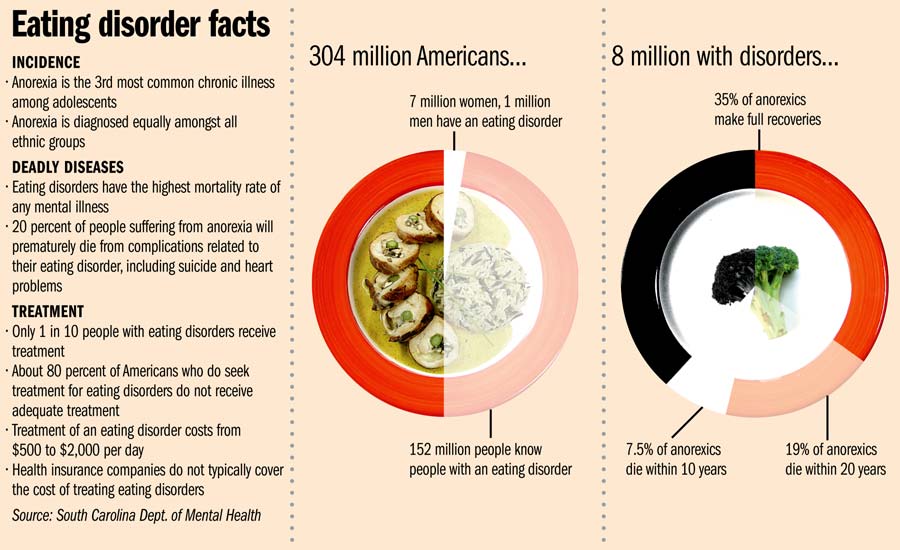 It is for this reason that I kept my illness a secret only until very recently.
It is for this reason that I kept my illness a secret only until very recently.
22. The comfort in knowing celebrities have suffered from it too
(Ian West/PA)
Many celebrities like Amy Winehouse and Nicole Scherzinger suffered with bulimia too, which gives great comfort to someone suffering from such an isolating illness.
23. That anxiety and depression often come with it
People with eating disorders tend to suffer with anxiety and depression and sometimes, these are what lead to the problems with food in the first place.
Just as a little note, I’ve been in recovery from my eating disorder for about two years now and I can’t remember the last time I made myself sick, so there is hope (pause for applause). Beat’s website is a great place to start if you think you might have a problem, and it’s also probably worth confiding in your GP.
Three Lesser-Known Behaviors Associated with Bulimia Nervosa
Table of Contents
Some may assume bulimia nervosa does not affect a lot of people, but the statistics may be surprising. It is estimated approximately 4.7 million females and 1.5 million males live with this condition every day, which translates to approximately 1.5 percent of women and 0.5 percent of men in this country alone. While it is a common misconception that someone who needs bulimia nervosa treatment would be easy to point out, this is not always the case. Some of those who do end up getting help from a bulimia treatment center have shown no obvious symptoms to their loved ones that there is anything wrong at all.
It is estimated approximately 4.7 million females and 1.5 million males live with this condition every day, which translates to approximately 1.5 percent of women and 0.5 percent of men in this country alone. While it is a common misconception that someone who needs bulimia nervosa treatment would be easy to point out, this is not always the case. Some of those who do end up getting help from a bulimia treatment center have shown no obvious symptoms to their loved ones that there is anything wrong at all.
If a loved one is showing signs of a bulimia eating disorder, it is critical family members do what they can to encourage the individual to get treatment. Education is the key to understanding how different symptoms and behaviors can be indications an eating disorder is present. Take a look at some of the lesser-known behaviors associated with bulimia nervosa.
1. Suddenly claiming they have a dietary restriction such as veganism/vegetarianism/unable to eat gluten.
People who have bulimia eating disorder do not always binge on food; they may also restrict their food intake much like someone who is suffering from anorexia nervosa. Therefore, some of the common behaviors may be present in both conditions. Dietary restrictions are common with both disorders, but sometimes, these restrictions will be done in a way that it is not obvious.
There are multiple ways to enact these restrictions. Many people make the lifestyle choice to go vegan and avoid all animal-related foods. Others may state they will no longer eat meat and are vegetarian. Some people have legitimate reasons to avoid foods that contain gluten, while others use it as a method to manipulate their food intake. As legitimate as these lifestyle choices can be, they can also be used as excuses to modify one’s eating habits by someone who has bulimia eating disorder and needs bulimia nervosa treatment.
Some individuals who have bulimia nervosa often avoid eating in social settings, but they will struggle to explain why it is they do not want to eat when others are expecting them to. Making claims they are vegetarian, vegan, or must avoid certain foods because of ill effects is an easy way to make others believe there is a logical reason why the person is not eating.
Making claims they are vegetarian, vegan, or must avoid certain foods because of ill effects is an easy way to make others believe there is a logical reason why the person is not eating.
Many people do suffer from food allergies, such as allergies to wheat gluten, and these allergies can mean a more restricted diet. And, it is not impossible for someone who has bulimia nervosa to also have a food allergy. Those who enter a bulimia treatment center that claim to have these allergies are tested by a physician to validate those claims to avoid any unnecessary dietary restrictions.
Of course, if these excuses are used in explanation to family members who are familiar with typical eating patterns, the situation can be a little more obvious. Therefore, if a loved one starts making claims they are making drastic changes in what they eat or their usual diet, it is best to pay attention and be alert to other signs that bulimia nervosa treatment is needed.
2. Commonly acting on impulse instead of rational thought.
There are some direct links between bulimia nervosa and impulsive behaviors. Many professionals view impulsive behavior and the eating disorder as something that can be treated concurrently; through bulimia treatment, the impulsive behavior may often cease as well. Someone who acts on impulse will seem to completely disregard what would normally be rational thought. For example, the individual may:
- Consume far more food than what would be deemed as normal
- Grab or snatch food and eat it suddenly without reservation
- Exercise for several hours instead of committing to work, school or other priorities
- Lash out for seemingly small things
- Make choices about their life that seem brash and sudden
Bulimia nervosa is an impulsive condition, and many of the behaviors associated with the disorder are not planned out. This is a fact many patients do not realize until they have entered bulimia nervosa treatment. Instead, the behaviors are often triggered by emotional upset or distress.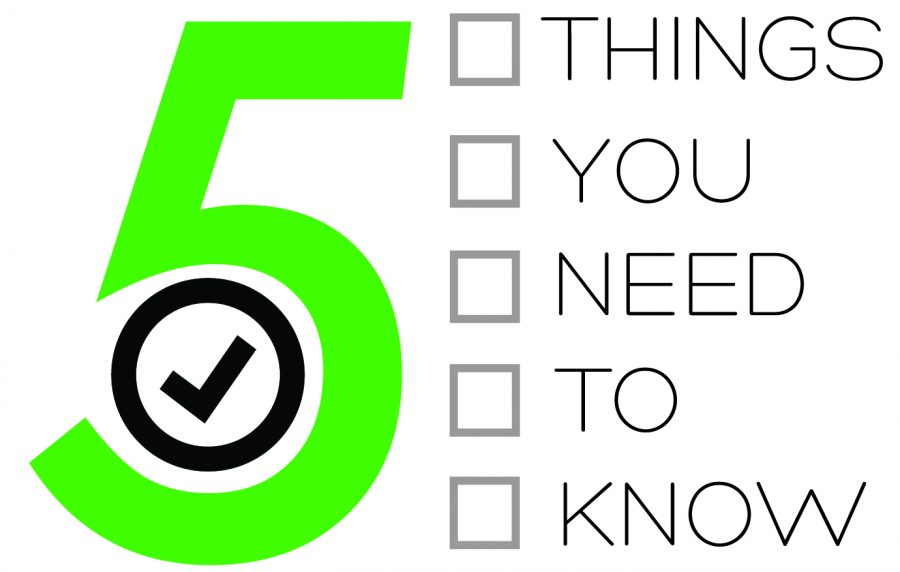 For example, an individual may be under a lot of stress in their relationship, so they binge on food, take in a lot of calories and then purge to eliminate the food from their system.
For example, an individual may be under a lot of stress in their relationship, so they binge on food, take in a lot of calories and then purge to eliminate the food from their system.
A report released by The Centers for Disease Control between 2013 and 2016 stated 49.1% of Americans are trying to lose weight or had tried to lose weight within the prior calendar year. This statistic is enough to show how many people there are who are interested in losing weight. Therefore, if a loved one is frequently concerned about the latest diet trends and fads to emerge to help people lose weight, it may be easy to assume this is normal behavior.
Unfortunately, people who have bulimia eating disorder may also be constantly preoccupied with the latest diet and weight-loss trends. They may try every new diet that comes along and spend a lot of time talking specifically about ways to shed pounds. Many people who have bulimia will be obsessive about ways to combat calories they are consuming as a means to prevent weight gain or lose pounds. A few things the individual may do include:
Many people who have bulimia will be obsessive about ways to combat calories they are consuming as a means to prevent weight gain or lose pounds. A few things the individual may do include:
- Taking new diet pills on a regular basis
- Watching television programs associated with diets and exercise regimens
- Researching fad diets on a regular basis
- Trying new diets every few days
- Spending a lot of money on new workout equipment or diet supplies, such as supplements
These kinds of behaviors are easy to dismiss over the short term. When someone is interested in getting healthy, they may spend a fair amount of time trying different diet or workout plans or methods. However, if this kind of behavior is an ongoing occurrence or seems too extreme, it is important that loved ones step in and talk to the individual about a potential need for bulimia recovery.
More Common Symptoms of Bulimia NervosaEach of the lesser-known behaviors alone may not be enough to diagnose someone with bulimia eating disorder. Therefore, it is important to understand the typical behaviors and symptoms that can be associated with the disease. To better determine if someone is in need of bulimia nervosa treatment, take a look at some of the typical behaviors someone with the condition may portray.
Therefore, it is important to understand the typical behaviors and symptoms that can be associated with the disease. To better determine if someone is in need of bulimia nervosa treatment, take a look at some of the typical behaviors someone with the condition may portray.
Obsessiveness Over Their Weight or Appearance
A constant obsessiveness over their weight, body image or appearance can be trademark signs of bulimia nervosa. An individual may spend hours stressing over how their clothing fits, how much they weigh or how they look in the mirror. Even though some people may portray these qualities at certain times or at different stages in their life, someone with an eating disorder will be far more obsessive. For example, they may analyze the way their body looks in the mirror for several hours or check their weight multiple times on a scale throughout the day.
Repetitive Binging/Purging Behaviors
Binging and purging are perhaps the most noteworthy and well-known behaviors associated with bulimia.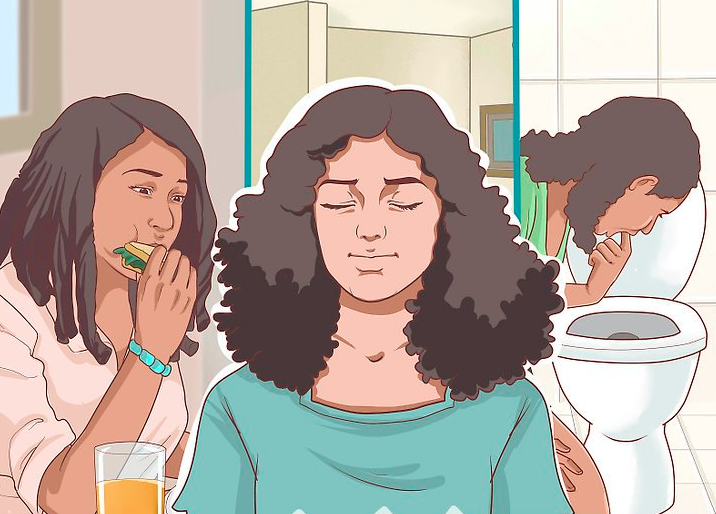 This behavior involves binging on an excessive amount of food and then purging by either inducing vomiting, taking diuretics and diet pills or exercising on an extreme level to burn as many calories as possible. Even though this behavior is common for someone with bulimia nervosa, it is also an issue that is commonly hidden. For instance, the individual may binge on foods while alone and hide the fact they are exercising by staying up and doing it through the night.
This behavior involves binging on an excessive amount of food and then purging by either inducing vomiting, taking diuretics and diet pills or exercising on an extreme level to burn as many calories as possible. Even though this behavior is common for someone with bulimia nervosa, it is also an issue that is commonly hidden. For instance, the individual may binge on foods while alone and hide the fact they are exercising by staying up and doing it through the night.
Eating In Secret
For someone who needs bulimia recovery, it is common for them to treat the act of eating as secretive and shameful. There may be a lot of guilt and shame associated with binging and purging. Therefore, the individual may only eat meals when they are alone and avoid eating when they are with family, friends or coworkers. In some cases, this is done in an effort to prevent loved ones from seeing there is a problem.
The media has skewed the public’s view of bulimia nervosa by only showing what people with this disorder look like when they are at their most extreme state. This, unfortunately, misrepresents bulimia as an eating disorder and gives the impression that people who have this condition all look the same. It is important to remember that even though people who need bulimia recovery may have similar issues at play, each individual is different. Therefore, symptoms and behaviors are not always as simple to point out as what might be expected.
This, unfortunately, misrepresents bulimia as an eating disorder and gives the impression that people who have this condition all look the same. It is important to remember that even though people who need bulimia recovery may have similar issues at play, each individual is different. Therefore, symptoms and behaviors are not always as simple to point out as what might be expected.
Those who are struggling and truly need bulimia recovery through a bulimia treatment center do not always get the help they need on their own. Therefore, it is important that loved ones step in and encourage the individual to get treatment. In order to do that, loved ones must arm themselves with knowledge, which includes getting familiar with the lesser-known behaviors that are involved with this eating disorder.
If a loved one is suspected of having an eating disorder, it is best to take steps to get them the help they need. These kinds of problems can be difficult to approach in the right way without making the individual with the problem feel guilt or shame about the situation. Some of the things to do may include:
These kinds of problems can be difficult to approach in the right way without making the individual with the problem feel guilt or shame about the situation. Some of the things to do may include:
- Be mindful of the symptoms and behaviors associated with the disorder
- Research the different treatment options available
- Avoid being negative, condescending or judgmental about the problem
- Approach the individual gently about the situation and possibly getting help
- Reach out to a qualified treatment center for information
Monte Nido, founded by Carolyn Costin, is a renowned eating disorder treatment facility that treats individuals with anorexia nervosa and bulimia nervosa to binge eating disorder. Our facilities provide compassionate care in a comfortable environment where patients can build a healthier relationship with food, themselves and others. Through various forms of treatment, including nutritional counseling and behavioral therapy, we assist individuals and their families to begin on the road to recovery. Reach out to one of our friendly representatives to find out more about our bulimia treatment center.
Carrie Hunnicutt
With 20 years of behavioral health business development experience, Carrie combines world-class marketing, media, public relations, outreach and business development with a deep understanding of client care and treatment. Her contributions to the world of behavioral health business development – and particularly eating disorder treatment – go beyond simple marketing; she has actively developed leaders for her organizations and for the industry at large.
Benefits of bulimia
Few people realize how easy it is to get bulimic. Having become a victim of this disease, no one assumes that the help of serious specialists will be needed, because bulimia causes significant harm to the body. Many believe that bulimia is a kind of game in which you will always be the winner and at any time you can change the conditions. Many ... until they encounter these ailments.
So you want to achieve ideal body parameters, which are demonstrated by glossy magazines or huge advertising posters that accompany you on your way to work or school. It seems that you have a lot in common with this girl from the advertisement, only she is a little thinner. So, you just need to limit yourself in food and the goal will be achieved. And, denying themselves first dinner, then lunch, few people think about what serious consequences this can lead to. You will look for a way out, and the girl from the advertisement will also smile with a mysterious smile of an incomparable beauty, which designers, stylists and, of course, a talented Photoshop specialist have worked on.
Irina, 20 years old, revelations from the network
“I thought I would just go on a diet and become beautiful. The diet helped, the weight began to go away, and then I ate, and everything returned to its place. And then I found out that there is a “wonderful” way - you can eat everything and lose weight. At first it was like that, then I had so many problems that I didn’t know how to solve them and where to start. But the main thing is that my condition scares me. I'm afraid of food. She is like an enemy to me. When I eat it, I feel shame and remorse. Food for me is not a joy, but a threat to the figure. But at the same time, I can't live without food. And again, and again, I eat up, go to the toilet to free the body from the “enemy”.
Yes, bulimia does seem to offer a number of benefits. In social networks, girls share their “finds” and talk about “achievements”. They are confident that the "advantages" of bulimia will allow them to eat whatever they want without any harm to the body, and at the same time lose weight. After all, the “magic” way - vomiting, makes it possible to immediately get rid of the food eaten and enjoy the taste of your favorite dishes. But these are just delusions that allow the disease to go too far.
6 delusions of a bulimic patient
Misconception 1
Bulimic patients believe that body weight is easy to control. They will reduce it without any difficulty. At the same time, you can forget about diets, you can eat whatever you want, and then pull out what you eat and feel lightness and joy. The joy of not harming your figure, but enjoying your favorite taste.
They will reduce it without any difficulty. At the same time, you can forget about diets, you can eat whatever you want, and then pull out what you eat and feel lightness and joy. The joy of not harming your figure, but enjoying your favorite taste.
Anna Vladimirovna Nazarenko, Head of the Clinic for Eating Disorders, reminds us that in order to lose weight and not eat fat-free cottage cheese all our life, you need to know everything about nutrition, dietetics, the work of the gastrointestinal tract and how biorhythms affect us. It's a difficult path to take alone, which is why most opt for "fast-acting" diets that often lead to bulimia, anorexia, and other eating disorders.
Delusion 2
Bulimics think they know everything about bulimia, even though they don't have a thousandth of the right information. If you ask them: “ Bulimia - what kind of disease is it? ,” they cannot answer this question. They have no idea how dangerous the consequences of bulimia for health and even life, and are firmly convinced that nothing will happen to them.
They have no idea how dangerous the consequences of bulimia for health and even life, and are firmly convinced that nothing will happen to them.
Bulimia experts can name thousands of examples of irreversible health damage caused by "harmless" bulimia. And destroyed teeth and fallen hair are just the tip of the iceberg, because the disease can disrupt the work of almost all internal organs.
Delusion 3
Bulimics are confident that they can stop everything at any moment. They promise themselves that the next day they will start eating normally and will live like everyone else. And now there is still a day when you can control the figure with the help of such an original way of getting rid of food ... Then another day ... Months and years pass like this, until the patient realizes that he will not be able to escape from this “running in a circle” and there is no magic button, which says "Stop, bulimia!".
Statistics say that patients with bulimia very rarely cope with their illness on their own. It is good if there is a person next to them who can provide moral support and monitor the patient's eating behavior. In severe cases, specialist help is needed.
Misconception 4
Bulimics claim that bulimia is good because they do a lot of sports and exercise is extremely beneficial. Yes, of course, sports are useful, in certain quantities. Patients with bulimia use fitness and sports to fight excess weight, so they do it intensively, through force, there is only one desire - to give themselves an even greater load. And now let's remember - the patient's body is constantly in a stressful state, the heart works with a load, and it is forced to work in an enhanced mode.
Head of the Clinic for Eating Disorders Anna Vladimirovna Nazarenko reminds that before going in for sports, you should consult a doctor about possible physical activity. Regular exercise in the gym involves proper nutrition, which gives the body energy and strength for sports. Does the diet of a bulimic fit these statements? No. Therefore, he goes in for sports with the last of his strength, spending the precious resources that he needs to maintain his life.
Regular exercise in the gym involves proper nutrition, which gives the body energy and strength for sports. Does the diet of a bulimic fit these statements? No. Therefore, he goes in for sports with the last of his strength, spending the precious resources that he needs to maintain his life.
Delusion 5
People with bulimia believe that if they can control their weight, then they have everything “under control”, they can control their lives. If they cannot control their appetite and improve their eating behavior, what kind of control over life can we talk about?
Experts say that a person with bulimia completely loses control of himself when he begins to consume food in large quantities. Vomiting is an attempt to regain “power” over his body and for a short time the bulimic manages to achieve balance, but this is only until “wolf” hunger overtakes him.
Misconception 6
Bulimics either don't admit they have a disease, or they know about the illness, but consider it to be something harmless, like a cold. They read stories on the net about how to get bulimic over and over again and see nothing wrong with it. “You don’t die from bulimia,” they say over and over again in their eating rituals.
They read stories on the net about how to get bulimic over and over again and see nothing wrong with it. “You don’t die from bulimia,” they say over and over again in their eating rituals.
Statistics say that people still die from bulimia, but not as fast as, for example, from anorexia. The consequences of the disease are insidious and can lead to serious diseases of the esophagus, stomach and intestines. Bulimia leads to disruption of the endocrine and cardiovascular systems.
Women are ready for any suffering to be beautiful: they endure pain after operations, they are ready to starve in order to look perfect. But you need to find a healthier way to be lean and lean without dieting or starving yourself.
Bulimics are sure that they have found a panacea for excess weight for life. No need to invent anything, you can eat whatever you want, then snatch food and lose weight.
But most bulimics with 7-8 years of experience know that bulimia gradually stops helping. The starving organism manages to “grab” the food and drag it around the body until the patient induces vomiting. And the bulimic starts gaining weight again.
The starving organism manages to “grab” the food and drag it around the body until the patient induces vomiting. And the bulimic starts gaining weight again.
It is actually very difficult to manage bulimia on your own. Every Monday you make a promise to start eating right, but nothing changes. It is said that it is easier to quit smoking than to deal with bulimia. But there is a way out - working with a specialist will correct the situation and find joy in ordinary things, forgetting about the terrible condition that bulimia leads to.
Bulimia: causes and remedies | Allure
What is bulimia - weakness, promiscuity, or is it still a disease? Sofia Ivanovskaya tells the story of her dramatic relationship with food.
I can't remember how or when this happened the first time. It didn't seem dangerous at all then. Just an easy way to eat deliciously and a lot and not get fat, getting rid of excess food. Two fingers in the mouth - and no worries. It never occurred to me that it was a disease, and a fairly common one at that. What is this disease? Petty human weakness and great human cunning.
Two fingers in the mouth - and no worries. It never occurred to me that it was a disease, and a fairly common one at that. What is this disease? Petty human weakness and great human cunning.
Food gives bulimics an intense physical pleasure. Before the feast, they experience almost sexual arousal.
***In Greek, bulimia means "bull's hunger."***Although animals cannot overeat to such a state and do something similar. It seems that only humans can do this. And the causes of bulimia are also very human. Psychologists often explain it by a lack of maternal warmth, excessive demands of parents, lack of breastfeeding, etc. Not exactly my case: my childhood was quite happy, my mother breastfed me for more than a year, and my parents didn’t seem to demand anything incredible from me. However, perhaps I really lacked physical contact: I don’t remember being squeezed or kissed, calf tenderness was somehow not accepted in the house. I always loved to eat and was very sad that tasty food was rarely served and strictly portioned. The pinnacle of bliss was ice cream - I was allowed to eat a quarter of a briquette with a tiny spoon for forty-eight kopecks. When I got older and started getting pocket money for transportation and the school cafeteria, I spent it all on ice cream. It replaced lunch and became the main pleasure of life. Four servings were the daily norm. One was poured with jam, another was sprinkled with cocoa, cookies crumbled into the third, and the fourth could be swallowed in its pure form. Parents, of course, did not guess what their daughter ate: I was at home alone for half a day. Having finished my ice cream, I, like a detective, scoured the house, looking for all sorts of goodies - food delivered a spicy and light pleasure. Moreover, I did not gain weight and for the time being did not think about it at all. I was not just thin, but frankly skinny: stick-legs, sharp knees, tall, nicknamed Dystrophic. And every evening, lying in bed, I dreamed of becoming a real beauty. Actually, here lies the root of evil.
The pinnacle of bliss was ice cream - I was allowed to eat a quarter of a briquette with a tiny spoon for forty-eight kopecks. When I got older and started getting pocket money for transportation and the school cafeteria, I spent it all on ice cream. It replaced lunch and became the main pleasure of life. Four servings were the daily norm. One was poured with jam, another was sprinkled with cocoa, cookies crumbled into the third, and the fourth could be swallowed in its pure form. Parents, of course, did not guess what their daughter ate: I was at home alone for half a day. Having finished my ice cream, I, like a detective, scoured the house, looking for all sorts of goodies - food delivered a spicy and light pleasure. Moreover, I did not gain weight and for the time being did not think about it at all. I was not just thin, but frankly skinny: stick-legs, sharp knees, tall, nicknamed Dystrophic. And every evening, lying in bed, I dreamed of becoming a real beauty. Actually, here lies the root of evil.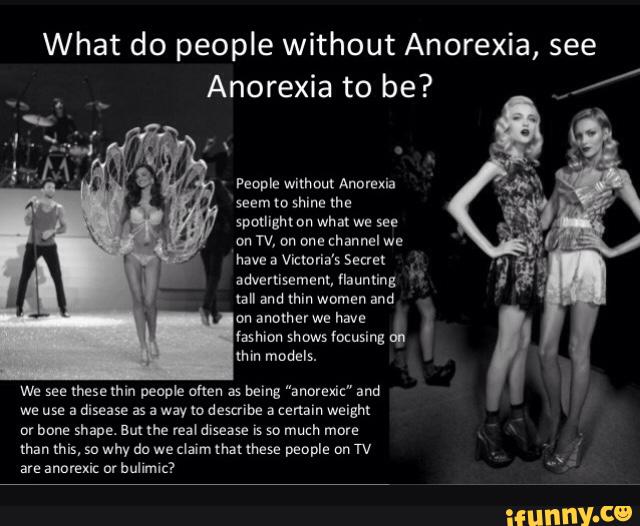 I wanted to be not just pretty, but really beautiful. I wanted to have a mane of curls (I had thin, straight hair of an indistinct color), delicate hands with oval nails (mine were gnawed to the blood), small graceful feet (my leg grew to size forty early), a thin waist (I had none) , a round butt (my older sister casually called my boyish ass square, and I still remember it vividly) and high breasts (I was flat as a washboard until I was fourteen). I wanted everyone to look back at me - fall in love at first sight, I wanted some kind of magical power over people. I cut out portraits of luxurious Western movie stars from the parent Soviet Screen, from Audrey Hepburn to Brigitte Bardot. And every night, sorting through my shortcomings, I compared myself with them and suffered endlessly because of my own imperfection. Psychologists say that perfectionism is one of the main causes of bulimia. Bulimic is obsessed with the idea of perfection and suffers from the unattainability of the ideal.
I wanted to be not just pretty, but really beautiful. I wanted to have a mane of curls (I had thin, straight hair of an indistinct color), delicate hands with oval nails (mine were gnawed to the blood), small graceful feet (my leg grew to size forty early), a thin waist (I had none) , a round butt (my older sister casually called my boyish ass square, and I still remember it vividly) and high breasts (I was flat as a washboard until I was fourteen). I wanted everyone to look back at me - fall in love at first sight, I wanted some kind of magical power over people. I cut out portraits of luxurious Western movie stars from the parent Soviet Screen, from Audrey Hepburn to Brigitte Bardot. And every night, sorting through my shortcomings, I compared myself with them and suffered endlessly because of my own imperfection. Psychologists say that perfectionism is one of the main causes of bulimia. Bulimic is obsessed with the idea of perfection and suffers from the unattainability of the ideal. The gap between how he sees himself in dreams and how he feels in reality, he fills with food, eating his anguish and his stress, and then rejecting them in order to torment and punish his body. This is always a disease of internally lonely people, dooming them to even greater loneliness. I really didn’t have close friends - I lived in my own fictional world.
The gap between how he sees himself in dreams and how he feels in reality, he fills with food, eating his anguish and his stress, and then rejecting them in order to torment and punish his body. This is always a disease of internally lonely people, dooming them to even greater loneliness. I really didn’t have close friends - I lived in my own fictional world.
As I grew older, my body gradually became rounder (appetite did not decrease, and ice cream was still part of the daily diet). The first love was painful: I chose the most beautiful boy in our area and suffered every time he just looked at me (or through me), it seemed to me that he would certainly be disgusted by my ridiculous body. I dared to kiss him only after swallowing a few glasses, and this kiss ended with the fact that I passed out from a cocktail of champagne, despair and happiness. Then I always needed alcohol to get rid of painful shyness, to feel more confident in my own body, to take the first step, even just to speak.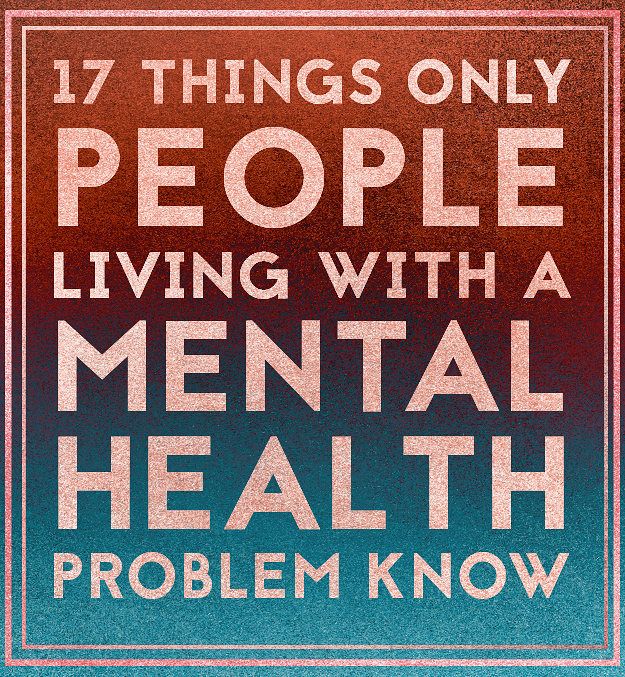 At the same time, outwardly, everything was fine: I studied well at the most fashionable institute, wore catchy makeup (trying to hide my insecurities under it, like under a mask), overgrown with a bunch of fans (although they all seemed to me infinitely far from the heroes who appeared to me in childhood dreams), but never found peace, confidence, or harmony with herself. I still hid my “square butt” under hoodies and would rather die than wear a mini. In addition, I slowly but surely began to gain weight: I no longer had to look for sweets hidden by my mother and collect pennies for ice cream, I had my own pocket money, and I, of course, spent all of it on food. In the evenings, I got on the scales and stated with disgust that I was steadily getting fat. I tried different wild diets, but the passion for food was too strong and always won. And somehow the decision came by itself: but you can eat anything you like without adding a single gram! At the same time, like most bulimics, I was not at all fat - my weight hardly rose above 65 kilograms with a height of 172 centimeters.
At the same time, outwardly, everything was fine: I studied well at the most fashionable institute, wore catchy makeup (trying to hide my insecurities under it, like under a mask), overgrown with a bunch of fans (although they all seemed to me infinitely far from the heroes who appeared to me in childhood dreams), but never found peace, confidence, or harmony with herself. I still hid my “square butt” under hoodies and would rather die than wear a mini. In addition, I slowly but surely began to gain weight: I no longer had to look for sweets hidden by my mother and collect pennies for ice cream, I had my own pocket money, and I, of course, spent all of it on food. In the evenings, I got on the scales and stated with disgust that I was steadily getting fat. I tried different wild diets, but the passion for food was too strong and always won. And somehow the decision came by itself: but you can eat anything you like without adding a single gram! At the same time, like most bulimics, I was not at all fat - my weight hardly rose above 65 kilograms with a height of 172 centimeters. But I hated my reflection in the mirror. And she still hated herself.
But I hated my reflection in the mirror. And she still hated herself.
One day you allow yourself something very small: a tiny dessert or a scoop of ice cream. And you fly off the coils in the Russian genre "go to hell!".
At first, attacks occurred only after large suppers or lunches. Then I began to prepare specially for meals: I carefully chose products in the store that were destined to end up in the toilet. Having finished everything, she opened the refrigerator and looked for something else to profit from. I didn’t want to eat anymore, but for some reason I continued to greedily and hastily stuff food into myself - I had to fill my stomach to the limit, but at the same time be in time until the food began to be digested. Then she leaned over the toilet and put two fingers in her mouth. At first it was easy, and I did not notice any special consequences. Then it didn’t occur to me that I had a severe nervous disease that needed to be treated, and that bulimia was destructive not only for the psyche, but also for the heart, stomach, liver, endocrine system, teeth, throat, skin.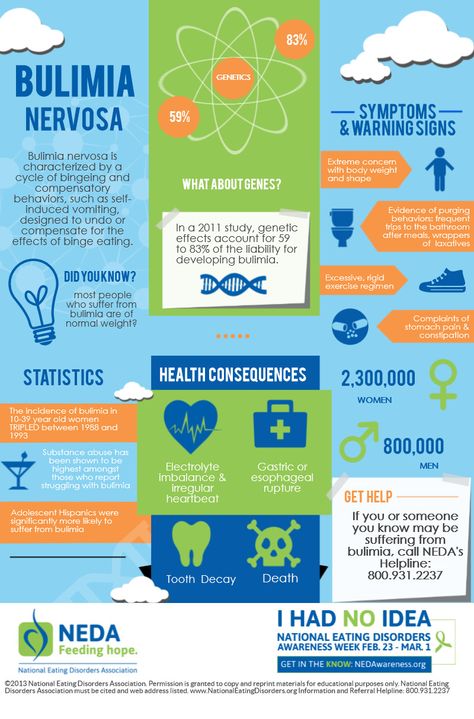 They didn’t talk about it, didn’t write, didn’t tell. Like many bulimics, I was sure that I was in control of the situation and that I could stop it immediately. It seemed to me that my case was unique and that this wild habit should certainly be hidden from others. Nobody knew about my bulimic attacks, neither my parents nor my friends.
They didn’t talk about it, didn’t write, didn’t tell. Like many bulimics, I was sure that I was in control of the situation and that I could stop it immediately. It seemed to me that my case was unique and that this wild habit should certainly be hidden from others. Nobody knew about my bulimic attacks, neither my parents nor my friends.
It all looked like drug intoxication or sexual ecstasy : at the moment when I was getting ready for the next spree, my head was spinning, my heart was beating wildly and I was trembling all over in anticipation of pleasure. Then came emptiness, longing, self-contempt and promises that this would not happen again. But this was repeated - a total of five or six times a month for two or three years. As I now understand, it was a fairly mild form of bulimia - many make themselves vomit several times a day.
Anorexia and bulimia are two sides of the same coin.
Experienced bulimics say that their illness sometimes stopped as if by magic. It was not so with me - the disease receded gradually. I fell in love, got married, the energy of real life somehow pushed aside the energy of food. Not that I accepted myself and my body, but I knew for sure that it was loved, admired and capable of giving pleasure and bearing children. And bulimia disappeared - it seemed to me forever. I was unaware of her cunning and was not ready for her return - after fifteen years. Outwardly, my life was harmonious and successful: a brilliant career, a caring husband, wonderful children. It seemed to me that I was in control of everything: work and family, weight and stress, health and passions. Food was still a temptation for me, but I was proud that I managed to overcome this temptation. In part, the passion for food was replaced by shopaholism - as if undermined, I bought more and more new things, enjoying the fact that I fit into the 42nd size. For many years I did not touch flour and sweets, I almost gave up alcohol and coffee, and several times a year I went to hard detoxes.
It was not so with me - the disease receded gradually. I fell in love, got married, the energy of real life somehow pushed aside the energy of food. Not that I accepted myself and my body, but I knew for sure that it was loved, admired and capable of giving pleasure and bearing children. And bulimia disappeared - it seemed to me forever. I was unaware of her cunning and was not ready for her return - after fifteen years. Outwardly, my life was harmonious and successful: a brilliant career, a caring husband, wonderful children. It seemed to me that I was in control of everything: work and family, weight and stress, health and passions. Food was still a temptation for me, but I was proud that I managed to overcome this temptation. In part, the passion for food was replaced by shopaholism - as if undermined, I bought more and more new things, enjoying the fact that I fit into the 42nd size. For many years I did not touch flour and sweets, I almost gave up alcohol and coffee, and several times a year I went to hard detoxes. Again, I didn't know how dangerous it was. She acted like an alcoholic. It is no accident that psychologists consider anorexia and bulimia to be two sides of the same coin and essentially the same disease . Half of bulimics during periods of remission sit on the most severe diets that can last for months. The danger of any diet is fixation on food, which turns into mania, and then into an eating disorder, from which one step to anorexia or bulimia. For many years, I could not eat a single piece, so as not to catch a glimpse of where and how these calories would come out. Too strict prohibitions will be violated sooner or later. At some point, you allow yourself something very small, a tiny dessert or one scoop of ice cream. And you fly off the coils in the Russian genre "go to hell!". Just one time. Then this is repeated again, but it is so scary to risk your thinness, obtained by hard many years of asceticism. And you remember that there is such an easy way to get rid of these extra hostile calories.
Again, I didn't know how dangerous it was. She acted like an alcoholic. It is no accident that psychologists consider anorexia and bulimia to be two sides of the same coin and essentially the same disease . Half of bulimics during periods of remission sit on the most severe diets that can last for months. The danger of any diet is fixation on food, which turns into mania, and then into an eating disorder, from which one step to anorexia or bulimia. For many years, I could not eat a single piece, so as not to catch a glimpse of where and how these calories would come out. Too strict prohibitions will be violated sooner or later. At some point, you allow yourself something very small, a tiny dessert or one scoop of ice cream. And you fly off the coils in the Russian genre "go to hell!". Just one time. Then this is repeated again, but it is so scary to risk your thinness, obtained by hard many years of asceticism. And you remember that there is such an easy way to get rid of these extra hostile calories. ..
..
When bulimia overtook me for the second time, there was no more information vacuum around it. Everyone knew about Princess Diana's eating disorders, on the Internet you could find long lists of famous bulimics - from Paula Abdul to Jessica Alba, from Lindsay Lohan to Mary-Kate Olsen, from Christina Ricci to Victoria Beckham. Such beautiful, such successful women, but it is success, publicity and high expectations of others that often turn out to be fatal. By that time, I had already read Jane Fonda's memoirs, where she frankly described her bulimia, which she suffered until her forties, while being the embodiment of vitality and health for the whole nation. Diane Keaton has just released her memoirs, where there is also a chapter on bulimia, which she suffered in the most severe form at the time of her romance with Woody Allen. Fonda is looking for the cause of his bulimia in the detachment of his father, Keaton - in a teenage striving for an unattainable ideal. One way or another, we are always dealing with a gap between the external and the internal, with the inability to accept ourselves, with loneliness, with the desire to drown out our fears and gain quick illusory comfort.
Translated from Greek, bulimia means “bull hunger”.
The fashion industry is largely to blame for the epidemic of anorexia and bulimia, promoting unattainable thinness . Comparison with the ideal that once tormented me has become a daily reality for millions of girls. From magazine pages, from posters at bus stops, from shop windows and from TV screens, they are bombarded with images of ideal bodies - and where comparison with the ideal begins, sprouts of anorexia appear. Designers and editors talk a lot about the need to stop the unhealthy propaganda of overly thin models, but they are slightly disingenuous - everyone knows that thin clothes look better, and therefore, sell better. Young girls are more likely to suffer from bulimia , because in order to resist it, you need to be a strong personality and have a strong psyche. Many do not stand up, subjecting themselves to torment for the sake of the desired model thinness (there are frightening statistics: death from anorexia in girls under 25 occurs more often than death from any other diseases). But the second wave of bulimia covered me in adulthood - and no amount of vaunted willpower and years of self-control helped. What in youth passed without consequences, now turned out to be difficult and painful. It was difficult to induce vomiting. After the attacks, the heart ached, the stomach could not return to normal for weeks, the gastric juice destroyed the tooth enamel, the throat hurt, the cycle was broken, and heartburn set in. But the main thing is self-contempt, which has never reached such a degree before. This time I realized that I could not solve this problem on my own and that I needed the help of a psychologist . I found a doctor with whom we slowly and carefully unravel the tangle of my past and present complexes and fears. I'm trying to come to terms with food, remove prohibitions, allow myself to eat everything, but without disruptions and excesses. I drive thoughts of detoxes and diets away from me. I try to come to terms with five extra pounds and buy clothes one size larger.
But the second wave of bulimia covered me in adulthood - and no amount of vaunted willpower and years of self-control helped. What in youth passed without consequences, now turned out to be difficult and painful. It was difficult to induce vomiting. After the attacks, the heart ached, the stomach could not return to normal for weeks, the gastric juice destroyed the tooth enamel, the throat hurt, the cycle was broken, and heartburn set in. But the main thing is self-contempt, which has never reached such a degree before. This time I realized that I could not solve this problem on my own and that I needed the help of a psychologist . I found a doctor with whom we slowly and carefully unravel the tangle of my past and present complexes and fears. I'm trying to come to terms with food, remove prohibitions, allow myself to eat everything, but without disruptions and excesses. I drive thoughts of detoxes and diets away from me. I try to come to terms with five extra pounds and buy clothes one size larger. I stop despising others for not having the willpower that I was proud of. I try not to demand perfection from people. But most importantly, I am learning to love myself. Tonight I will go to a restaurant and order a plate of pasta and for dessert a scoop of ice cream. Just one ball. Just one.
I stop despising others for not having the willpower that I was proud of. I try not to demand perfection from people. But most importantly, I am learning to love myself. Tonight I will go to a restaurant and order a plate of pasta and for dessert a scoop of ice cream. Just one ball. Just one.
How to recognize bulimia in time
If, in addition to excessive appetite (a bulimic can eat up to three kilograms of food at a time), you notice several of the following symptoms in yourself, consult a doctor: 1. Perception of any physical activity as a punishment for overeating. 2. The mechanical process of eating (you don't remember what exactly you ate). 3. Daily intake of laxatives and diuretics, the use of drugs that suppress appetite. 4. The desire to "seize" any problem and stress. 5. The desire to eat alone, especially forbidden food. Destruction of the traces of his feast. 6. Constant fixation on food, the desire to discuss your own and someone else's weight.



